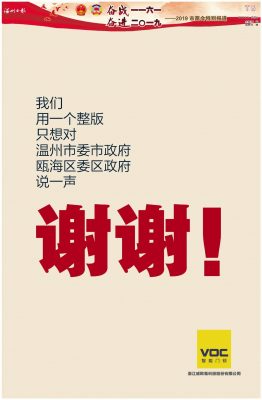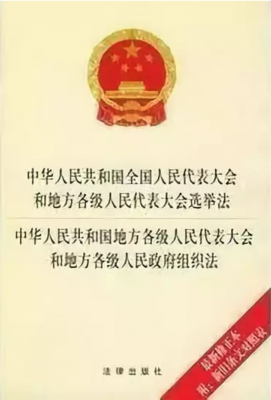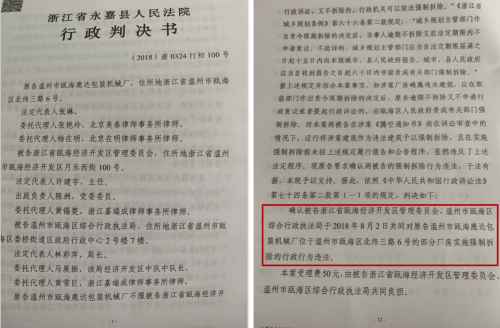In this imagined “New Era” of governance for China, President Xi Jinping has emphasised again and again the need to shore up the Chinese Communist Party’s dominance of all aspects of society. The media, as constructors and communicators of the Party’s “mainstream” ideology, are absolutely core to this mission, and so we have seen not just a consolidation of controls over traditional media but a renewed push to exploit digital technologies in order to ensure the Party is enmeshed with daily life.
In this political environment, in which governance equates with obedience, it has been increasingly challenging to find critical voices, despite the proliferation of the media tools and platforms that would seemingly empower such voices. But the critical voices are there, and they can assert themselves at times in the most surprising of places — a reminder of the complexity of the Chinese context.

One interesting example came yesterday as Chen Dongshen (陈东升), director of the news station for the Legal Daily (法制日报) newspaper in Zhejiang province, wrote a critical post on his WeChat public account about an advertisement appearing in Wenzhou Daily (温州日报), the official Party publication under the oversight of the top leadership in the city of Wenzhou.
The advertisement in question, which appeared across a full page, was taken out by VOC, a private company specialising in smart locks. Against a simple, putty-coloured background were the giant words “Thank You!” They followed a message that read: “We take this full page only with a wish to say the words THANK YOU to the Party Committee and Government of Wenzhou and to the Ouhai District Party Committee and Government!” At the very top of the page was the insignia of the People’s Republic of China. In the upper right-hand corner were the words, “Special Report for the 2019 Two Meetings of [Wenzhou] City,” referring to upcoming local session of the people’s congress and the Chinese People’s Political Consultative Conference (CPPCC).
Chen Dongshen had a number of serious objections to the appearance of this advertisement in the official Party newspaper of the city of Wenzhou, and he laid these out in a careful and well-reasoned manner in his post.
In Xi Jinping’s political culture of praise and obedience, how can such expressions of gratitude to the local leadership occasion open criticism?
Before I get into the details of his argument, we should note that Chen’s paper, the Legal Daily, is the official publication of the Central Political and Legal Affairs Commission, the body under the Party’s Central Committee that overseas law enforcement, including the police. As such, Chen of course is a journalist within the Party press system, and exactly the sort of “press worker” (新闻工作者) envisioned as carrying out Xi Jinping’s mandate (remember his February 2016 speech on media policy) to “love the Party, protect the Party and serve the Party” — to be, that is, “surnamed Party.“
The Chinese Communist Party regards the Party-run press in particular as the “vanguard,” as the means by which the “correct” political orientation — the desired attitude toward key issues, breaking news and policies — can be signalled and enforced throughout the broader field of public opinion.
Chen, moreover, is a locally-based journalist for this national-level Party publication, a Zhejiang native, which makes his criticism all the more extraordinary. As one veteran journalist wrote on WeChat, responding to Chen’s post: “This piece written by Chen Dongshen, the director of the Zhejiang news desk of the Legal Daily, is written rationally on the basis of facts. For a central Party media journalist who is a native of Wenzhou to make such a serious and impartial criticism of the Party and government of his hometown in such a way is no easy thing — a friend capable of open admonition!”
Quite a number of media professionals commenting on WeChat have suggested, in fact, that the advertisement appearing in Wenzhou Daily should never have appeared in the first place, given that the newspaper is a Party-run paper, or dangbao (党报). And some have suggested the advertisement showed a glaring lack of political sensitivity, and was an act “without Party spirit” (没有党性).
Here we begin to see just how complicated the simple injunction to obey the Party can become. Xi’s 2016 speech on the role of the media was chockfull of talk about the need to uphold the “Party spirit,” the concept at the heart of the notion of being “surnamed Party.” The injunction to “love the Party, protect the Party and serve the Party” must apply at the local and regional level as much as at the national level. But how does one balance this all-encompassing, veto-power value with the values the Party and government ostensibly uphold on a practical level? . . . Values, for example, like putting the people first, or serving the development of the private sector, or upholding law-based administration?
As a fundamental, infrangible rule of conduct, obedience undermines the very authority it is meant to protect.
But let’s take a quick look at Chen Dongshen’s objections. His post is titled “Why Is the Full-page Thank You From a Wenzhou Company Ahead of the People’s Congress Strange?” It lays out three primary objections to the advertisement, as follows.
First, he asks, “Where is the need for thanks?” He points out that the local government’s role and responsibility, given that it is supported by taxpayers, which includes businesses, is to make matters convenient and conducive to entrepreneurship and business development.
“Anyone who is in the least bit enlightened about such things,” Chen writes, “knows that the government is product of a ‘social contract’ between the government and the taxpayers, and taxpayers yield a measure of powers so that taxes can be collected and the government supported. The government is then responsible for providing the public with social services and public security.” Chen adds, moreover, that far from expecting gratitude out of hand, the government should expect and accept criticism should it fail in its obligations.
A more sensitive point, which Chen raises rather obliquely, is that acts of illegality and corruption might be suspected if indeed a private company does have reason to “thank” Party and government officials: “If the Ouhai District Government offered any convenience to this company outside of the legal procedures, this of course is another matter entirely,” he writes.

Second, Chen voices his objection to the fact that this advertisement from VOC is appearing as part of “special coverage” for the local Wenzhou people’s congress and consultative conference, important annual political sessions that correspond with the national-level National People’s Congress (NPC) and Chinese People’s Political Consultative Conference (CPPCC), generally referred to as the “two meetings,” or lianghui (两会). These associations, made clear at the top of the advertisement, appear to suggest that this is something more than a simply private sector thank you.
“Why,” Chen asks, “do we hold our local congresses every year?” Citing the Organization Law for the formation of local people’s governments, he says that the primary task of these events is to “discuss and decide major matters concerning politics, economy, education, science, culture, sanitation, environment and resource protection.” According to this law, the author points out, people’s congress delegates are empowered by the law to speak without fear of repercussion. They can submit ideas, opinions and criticism. With 10 signatures or more, they can initiate formal inquiries and petition to remove officials.
So why, again, this sense of gratitude from the private company, particularly in the context of a political session that is meant to underscore the government’s responsibilities and to direct its work? “One thing that the law does not stipulate,” Chen writes, “is that people’s congress delegates or companies should openly express their thanks to the government while congress is in session.”
Private sector businesses must look to their own interests and development, says Chen. Beyond that, they have no obligations to the government. “Any private enterprise can hold itself high and live and develop with dignity so long as it stands on its own, creates wealth, generates employment and pays its taxes. There is no need for it to bend its knee and cup its hands in servile tribute.”
Third, Chen criticises the advertisement in Wenzhou Daily for encouraging the misperception that “Wenzhou’s investment environment has already been perfected, and that there is no need for further advancements,” when the provincial leadership has already stated repeatedly that “reforms are only ever in progress, never complete” (改革只有进行时没有完成时).
But beyond this general question of complacency and self-congratulation, there is the more serious charge of misconduct by local governments. On this count, Chen mentions Ouhai District, whose government and Party committee are thanked in the advertisement, as an example of rampant problems:
In recent days I have received a number of documents regarding complaints brought against the Ouhai District Government, or regarding lawsuits it has lost. For example, the Ouhai Economic Development Commission (瓯海经济开发区管委会) and the district’s Comprehensive Law Enforcement Bureau [this is a body in charge of urban management matters], without having gone through the proper legal procedures, forcibly demolished a factory complex in the name of industrial upgrading, and was taken to court by the company. Wenzhou’s Yongjia County People’s Court, after hearing the case, recently determined that the defendant was in violation of the law.
Chen posts an image of the court verdict in the forced demolition case, which clearly notes that the above-mentioned offices in Ouhai District carried out an illegal demolition of the complex operated by the plaintiff, a private company, on August 2, 2018.

The question that lingers tantalisingly at the end of Chen’s post is whether such acts of servile gratitude should be accepted, while criticisms are discouraged by a culture of loyalty.
Chen brings his point home by turning the situation around, imagining a very different add purchased by the above-mentioned company suffering illegal demolition of its facilities:
“To offer an example, what I mean to say is, if this company wanted to pay money to post an ad in the newspaper that read ‘We take this full page only with a wish to say to the Ouhai District Government: you have acted recklessly!’ — what media would have the guts to run that?”




















